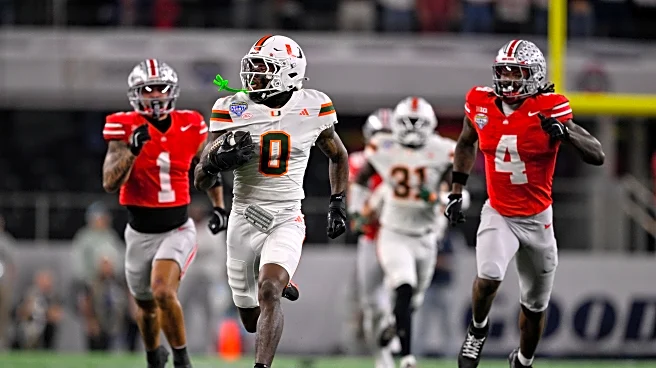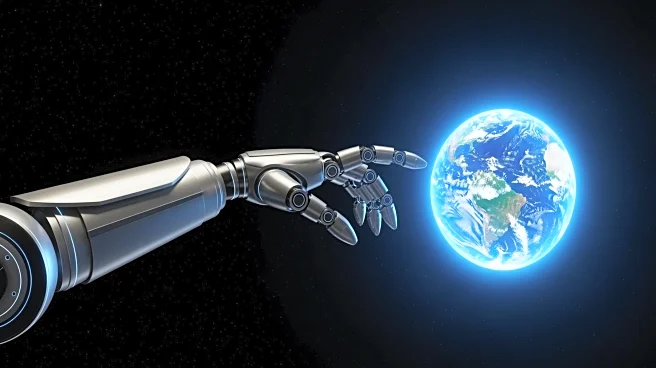What's Happening?
The Content Overseas Distribution Association (CODA), representing major Japanese publishers and producers, has formally requested that OpenAI stop using copyrighted Japanese content to train its generative
AI tool, Sora 2. This request, reported by Automaton, highlights concerns over the use of intellectual property from companies like Bandai Namco, Square Enix, and Studio Ghibli without permission. Sora 2, launched on October 1, allows users to generate short video clips, which have included content resembling well-known Japanese franchises such as Pokemon and Dragon Ball. CODA's statement emphasized that the outputs of Sora 2 closely resemble Japanese content, suggesting the use of Japanese IP as training data without authorization. The association demands that OpenAI cease using its members' works without prior permission and respond to any copyright infringement claims.
Why It's Important?
This development underscores the ongoing global debate over the use of copyrighted material in training AI models. For the U.S. and international tech industries, this situation highlights the legal and ethical challenges of AI development, particularly concerning intellectual property rights. Japanese publishers and the government view anime and manga as cultural treasures, and unauthorized use could lead to significant legal repercussions for OpenAI. The outcome of this dispute could set precedents for how AI companies handle copyrighted content, impacting future AI training practices and international relations in the tech sector.
What's Next?
The Japanese government has already asked OpenAI to refrain from infringing on Japanese intellectual property, with potential investigations under the AI Promotion Act if compliance is not achieved. OpenAI's response to these demands will be crucial, as failure to address the concerns could lead to legal actions or stricter regulations. The situation may prompt other countries to evaluate their own policies on AI and intellectual property, potentially leading to a more regulated environment for AI development globally.
Beyond the Headlines
This issue raises broader questions about the balance between technological innovation and the protection of cultural heritage. As AI tools become more sophisticated, the potential for cultural appropriation and the erosion of intellectual property rights increases. The case also highlights the need for clear international guidelines on AI training data, which could help protect creators' rights while fostering innovation.










